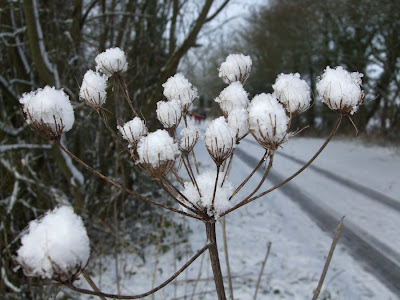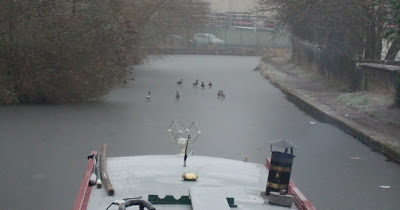
By the time you read this I will have interviewed Steve Birtles from the Broads Authority about a
new leaflet it's produced. It's headed "Winter Boating" and consists of safety advice most of us would call common sense. Some might call it daft. One of the things you are advised to take with you on the Broads in winter is a VHF radio. And I don't think it's talking about something to entertain you while you await rescue after your hot drink has run out. I assume it means a ship-to-shore transceiver, the sort of device people need training in their proper use.
Are they serious? I shall ask Mr Birtles.
Here's an extract from the leaflet:
In the bleak midwinter ... the Broads can be a lovely, wild place -
quiet, full of winter bird life, crisp, cold and
invigorating. But please remember there are
extra things to consider. It’s quiet because
there are fewer people around and winter
cold is much more enjoyable if you’re warm
and dry with food and a hot drink to hand
if needed, than if you’re wet and shivering
on a remote riverbank ...
Still keen to go? Then read on and
Go Boating Safely!
Planning ahead • Check the weather. Keep checking
as things can change, and adapt your
plans - don’t just carry on regardless.
• Remember, in an open boat or a sailing
boat you’re even more vulnerable to
the elements and wind chill. Consider
getting an immersion (dry) suit with
built-in buoyancy.
• Exceptionally high water may cause
flooding, and high winds can be
dangerous. Rivers may be iced up or
have ice in them even if roads are clear.
• Never navigate through icy water.
There could be thicker ice hidden under
the surface which could damage your
boat or even make it sink.
Some areas ice up quickly such as
Womack Water, Barton Broad, Oulton
Broad, Hardley Dyke and Langley Dyke.
• Cold water is dangerous - your
chances of survival are extremely low if
you fall in.
• Make sure your boat engine is set up for
winter use - with anti-freeze in it.
• Do not close any ventilators. Use only
boat-based heating. Do not introduce
any additional portable heaters - they
can lead to poisoning or fires.
• Never go alone. Let people know where
you are going and when you leave. Let
them know when you return as well.
• Things to take: life-jacket, warm
clothes, a change of clothes, strong
waterproofs, footwear with good tread,
a hot drink, food, a mobile phone, a
torch and spare batteries, a VHF radio.
(There's more in the same vein. I'm being sent to get some weather pictures and an interview clip, not a self-contained package.)








































































